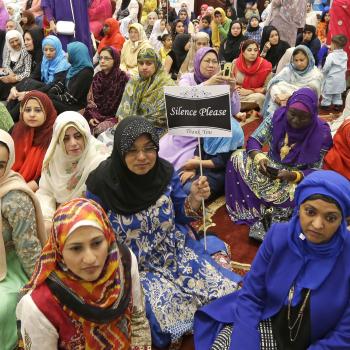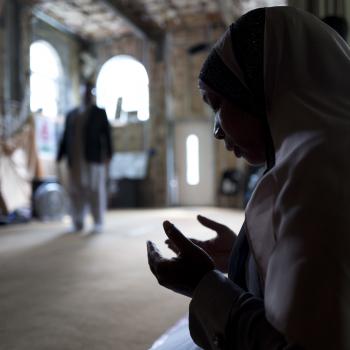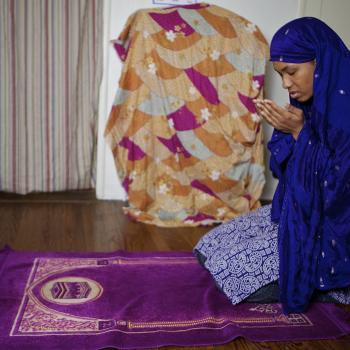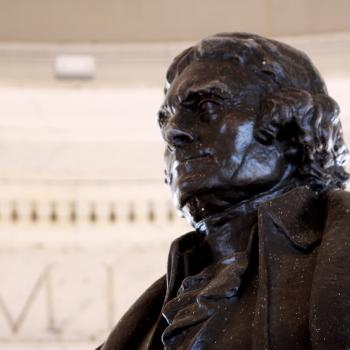By Richard Cizik.
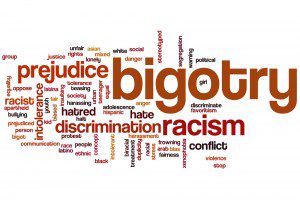
Last week, a Sikh American resident from the Chicago suburbs was brutally assaulted by a random stranger. The perpetrator told the man, “Terrorist, go back to your country, Bin Laden!” before the victim fell unconscious. This innocent individual—a member of his local community and a father of two—was identified with terrorists, and bigotry was used to justify a horrific beating.
The origin of the word “bigot” dates as far back as 1598. According to Wikipedia, the story goes that when the Normans’ Duke Rollo was marrying King Charles’ daughter, he “refused to kiss the King’s foot in token of subjection—unless the king would hold it out for that specific purpose. When being urged to do it, Rollo answered hastily ‘No, by God’, whereupon the King called him bigot, which then passed from him to his people.” Thus began the use of the term, sometimes justifiably, other times not.
“Bigot” suggests not only the rejection of someone of another race or religion but can be used to refer to intolerance towards a group of people in general based on their characteristics such as religion.
Attacks against Muslim, Arab, and South Asian Americans occur with frequency, and some of these are surely “hate crimes,” rooted in bigotry. The path toward a different kind of society, exemplified by love, forgiveness and grace, also occurs frequently, even if it’s not publicized. For example, after the shooting in Chattanooga Tennessee, “Religions for Peace” and the “Our Muslim Neighbor” coordinated a multi-faith fundraiser led by the Muslim community in Tennessee, raising more than $22,000 for the victims’ In Knoxville. It’s in such moments we are reminded that Muslims and Christians know what it means to be a part of the fabric of society and community and are stepping up to prove it.
Questioning what motivates a person or an organization is problematic. It comes in part from being at the other end of such criticism. Moreover, to give the benefit of the doubt, call it a form of grace, can and should be extended to others as God extends it to us.
Nevertheless, just last week, the ACT! for America Conference brought together some of their members to meet with fifteen members of Congress on the dangers of Islam. While I didn’t attend, based upon previous comments by its founders, this is what could be expected: Any “practicing Muslim who believes in the teaching of the Quran… cannot be a loyal citizen to the United States of America.” Or this: “Those who are telling you Islam means peace are lying to you.” There are consequences to this kind of assertion: members of my own evangelical faith community read it and believe it. They are led to question whether Islam and their Muslims neighbors, are part of our shared American values.
Members of Congress are entitled to meet with whomever they choose. History shows that Americans are more likely in danger from violent extremists who hate our own government—such as Timothy McVeigh responsible for the Oklahoma City bombing—than they are from sympathizers of groups like ISIS. By their association with Act for America!, members of Congress appear to be lending their endorsement to discrimination of an entire religion.
ACT! for America no doubt claims it is simply alerting public officials to the dangers of Islam. What is an inevitable consequence is this: suspicion and hostility towards American Muslims. In my home state of Virginia, a “training” for local law enforcement officials called “Understanding and Investigating Jihadi Networks in America,” was sponsored by a man who has claimed that CIA Director John Brennan has converted to Islam and is unfit for duty. Really? Is that someone who should be put in charge of training law enforcement officers?
Bigotry ignores the extraordinary contributions American Muslims have made in our nation, from Ahmed Zewail (who won the Nobel Prize in chemistry for his work on femtochemistry) to Representative Keith Ellison, the first American Muslim in Congress, to boxing great Muhammad Ali. The fabric of our nation has been woven with the accomplishments of our Muslim neighbors. They are our teachers, our doctors, our students, our basketball coaches, and our friends.
In the Scriptures, we learn from John 4:11 that “Beloved, if God so loved us, we ought also to love one another.” Traditionally, this love spoken of is directed to the “body of Christ,” the church. But there is no reason why it shouldn’t apply to our neighbor as well: “Teacher, which is the greatest commandment in the law? Jesus replied: “Love the Lord your God with all your heart and with all your soul and with all your strength and with all your mind, and love your neighbor as yourself.” (Luke 10:27) Thus, we must extend the same kindness towards others that we would want for ourselves.
Rather than looking at our neighbors with suspicion, practicing love and tolerance towards people of all faiths—including the American Muslim community and those who are perceived to be Muslim—must be our first step towards creating a stronger and more secure society and nation. We must also hold our elected officials accountable for the things they say and the prejudices they endorse, whether intentional or not.
Together, as individuals, citizens and public leaders, let’s labor for the common good. The very idea of it is dynamic, growing as a movement, and wonderfully winsome. The scales of the universe, as once said, come down decisively on the side of love.
Richard Cizik is the President of the New Evangelical Partnership for the Common Good.




